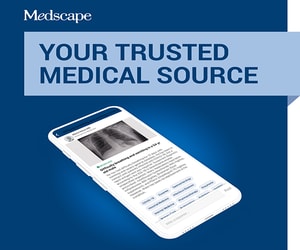Oct. 10, 2005 (San Francisco) -- In new results from a phase 3 study, a vaccine has been shown to successfully prevent pre- and noninvasive cervical cancers caused by high-risk human papillomavirus (HPV) strains 16 and 18. The investigational vaccine (Gardasil; Merck), was 100% effective in preventing HPV 16/18-related moderate- and high-grade cervical intraepithelial neoplasia (CIN 2/3) and adenocarcinoma in situ (AIS).
In an ongoing phase 3, double-blind study, called FUTURE II, 12,167 women aged 16 to 23 years were randomized to receive the vaccine (n = 6,087) or placebo (n = 6080) administered in three doses (on day 1 and at two and six months). All women had Papanicolaou tests and HPV swabs on the first day and at seven, 12, 24, 36, and 48 months. For women who were referred for colposcopy, biopsies were HPV-typed. Most of the women participating in the trial were from Europe (about 65%), followed by Latin America (26%), the Asian Pacific (20%), and North America (8%).
Two analyses were performed: a per protocol (PP) analysis in which patients received all three doses, were seronegative for HPV 16/18 on day 1 and DNA-negative for HPV 16/18 on day 1 through month 7, and experienced no major protocol violations; and a modified intent-to-treat (MITT) analysis in which patients received one dose or more and were negative for HPV 16/18 on day 1.
At seven months, the efficacy of the vaccine was 100% in the women who received the vaccine in the PP analysis, with no cases of infection detected in 5,301 vaccinated patients. At 30 days, the efficacy of the vaccine was 97% for the vaccinated women in the MITT analysis, with one infection detected in 5,766 vaccinated women.
Of the women in the placebo groups in the PP analysis (n = 5,258) and the MITT analysis (n = 5,766), 21 and 36 cases of infection were found, respectively.
Although it is uncertain from the study how long the vaccine is effective, coinvestigator Laura Koutsky, PhD, from the HPV research group at the University of Washington in Seattle, said the data suggest that duration may be from five to 10 years.
With the strong efficacy shown in the study, the authors expect that universal administration of the vaccine could reduce the incidence of cervical cancer. Although not all of the estimated 30 strains of HPV cause cervical cancer, the high-risk strains 16/18 account for 70% of cervical cancers. Finding a vaccine that prevents HPV infection is therefore a boon to public health measures to reduce a burden of cancer that has a high rate of mortality in many parts of the world. In 2005, more than 10,000 new cases of cervical cancer will be diagnosed in the U.S. and about 3,700 women will die of the disease.
One of the key questions raised by the study is the target population for the vaccine. Because the vaccine needs to be given to women prior to becoming sexually active, the primary candidates are preadolescents, Dr. Koutsky told Medscape. Although the age group in the study was 16 to 23 years, Dr. Koutsky thinks the vaccine is better targeted to nine- to 12-year-olds. However, she said, the decision on who and when to vaccinate is under discussion by an HPV work group under the auspices of the Advisory Committee on Immunization Practices (ACIP) at the Centers for Disease Control and Prevention, and will be in part guided by financial issues.
Other questions are being raised by people worried that such a vaccine will be misinterpreted as promoting sexual activity among young girls, because HPV is sexually transmitted. In a separate session in which Dr. Koutsky presented some of the same data, she mentioned the many phone calls she gets asking whether the HPV vaccine will increase sexual risk-taking behaviors.
Jack Sobel, MD, a professor of medicine and chief of infectious diseases at Wayne State University School of Medicine in Detroit, agreed that this is a major issue being raised. "It is beyond belief that there has been public opposition to and protesting against a vaccine that will save lives," he told Medscape. "The concern of increased promiscuity is incomprehensible."
From Dr. Koutsky's perspective, "what parents really want to know is whether the vaccine is safe, effective, and is targeting an important disease." Acceptability of the vaccine will require the cooperation of parents, youth, and healthcare providers, she added, although a big question is the role that government and policy-makers may or may not play.
Whether the vaccine will be recommended for boys is unknown. According to Dr. Koutsky, an ongoing trial being conducted by Merck is enrolling men. And she added that the literature suggests that universal vaccination is more effective than targeted vaccination.
IDSA 43rd Annual Meeting: Abstract LB-8a. Presented Oct. 7, 2005.
Reviewed by Gary D. Vogin, MD
Medscape Medical News © 2005В
Medscape
Cite this: HPV Vaccine Reduces the Risk of Cervical CancerВ -В MedscapeВ -В OctВ 10,В 2005.






Comments